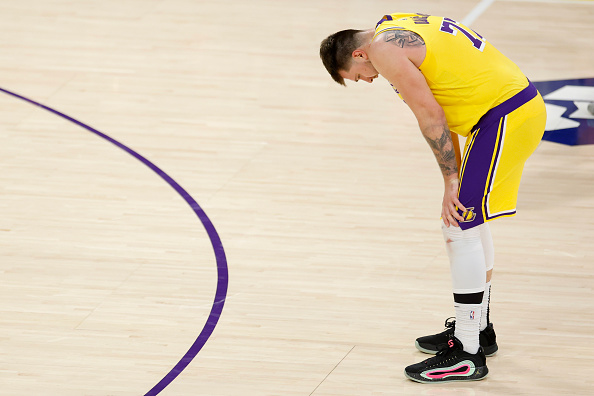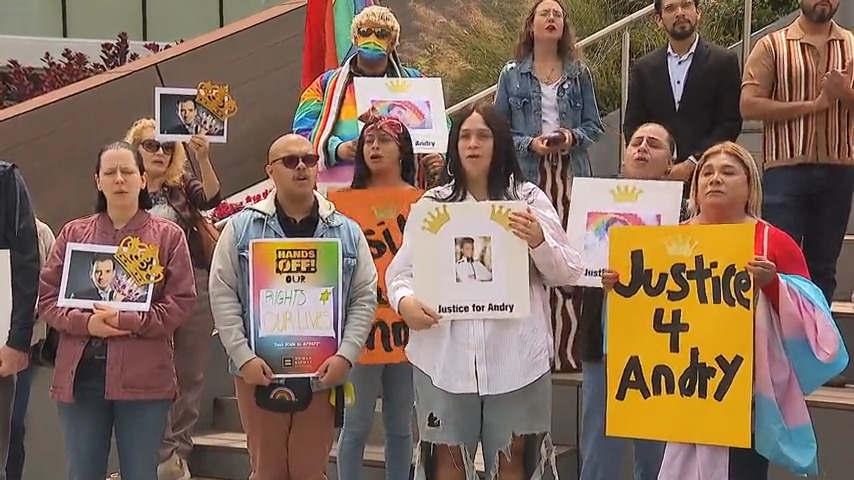California Highway Patrol records show a charter bus that crashed earlier this month, killing nine, had not been inspected for safety because the owner failed to list it as required under state law.
Vehicle inspection records released Monday reveal that the owner of the tour bus company, Daniel Cobb, did not tell CHP inspectors about the bus involved in the fatal Oct. 5 accident.
Investigators are looking into the history of that bus, which also had not been issued a permit by the California Public Utilities Commission.
"It will be months before we have all those answers," CHP spokeswoman Fran Clader said.
Two other tour buses operated by his business, Cobbs Coaches, passed safety inspections as recently as March.
The inspection records were released after The Associated Press and other news organizations filed requests under the California Public Records Act.
The Department of Motor Vehicles said the third bus carried an invalid license plate and was not authorized to be on the road. Cobb's failure to disclose that bus to CHP inspectors was just one of several ways he sought to dodge state laws regulating tour bus companies.
News
Top news of the day
Cobb, 68, died when the bus overturned on a two-lane road about 60 miles north of Sacramento. Many of the 42 passengers heading to the Colusa Casino Resort were senior citizens and Laotian immigrants.
He was listed as the sole owner of the bus company, which was based in Sacramento. Oliver Davis, listed on the CHP inspection records as an emergency contact for the company, did not return a phone call left Monday at his home.
Records released earlier this month by the Public Utilities Commission, which issues permits for tour buses, showed that Cobb was authorized to operate just a single bus. He also was listed as his company's sole driver.
The one bus that was permitted by the state was a 1987 diesel model with an estimated 309,000 miles. It had passed annual safety checks, with the exception of some minor violations in 2007, according to the CHP records.
Cobb was given an unsatisfactory rating in 2007 for failing to display a company name or trademark and a carrier ID.
While Cobb told the CHP about his second bus, he did not seek to upgrade his permit through the PUC to get approval for additional buses. He also failed to inform the PUC that he had employed at least one driver, even though he disclosed that to the Highway Patrol.
The discrepancy between the number of buses inspected by the CHP and the number permitted by the Public Utilities Commission highlights a potential gap in how California regulates tour bus companies.
Clader, the CHP spokeswoman, said inspection records are not forwarded to the Public Utilities Commission if the bus passes or if the company's owner remedies any problems.
For example, Cobb was cited last year for faulty break lights on his second bus but later fixed it. Therefore, an inspection report that might have alerted the PUC to his additional buses was not sent.
Cobb also was cited for failing to require his driver to log his hours. Because he fixed that, as well, no report was sent to the PUC that showed he had employed a driver.
Cullen Sisskind, a motor carrier specialist at the CHP, said inspectors rely on the bus companies to accurately report their fleet.
"Absent evidence to the contrary, we take that information at face value," Sisskind said.
Public Utilities Commission spokeswoman Terry Prosper said she would check to see what records if any the CHP is required to forward.
The driver during the fatal rollover crash, Quintin Watts, was arrested for violating his parole by driving without a proper license allowing him to carry more than 10 passengers, said Department of Corrections and Rehabilitation spokeswoman Terry Thornton.
Watts, 52, is being held at Deuel Vocational Institution in Stockton. The state Board of Prison Terms will schedule a hearing by Oct. 31 as it considers revoking his parole, Thornton said.
He was released from prison last December after serving nearly six months for possession of a fire arm by an ex-felon.



